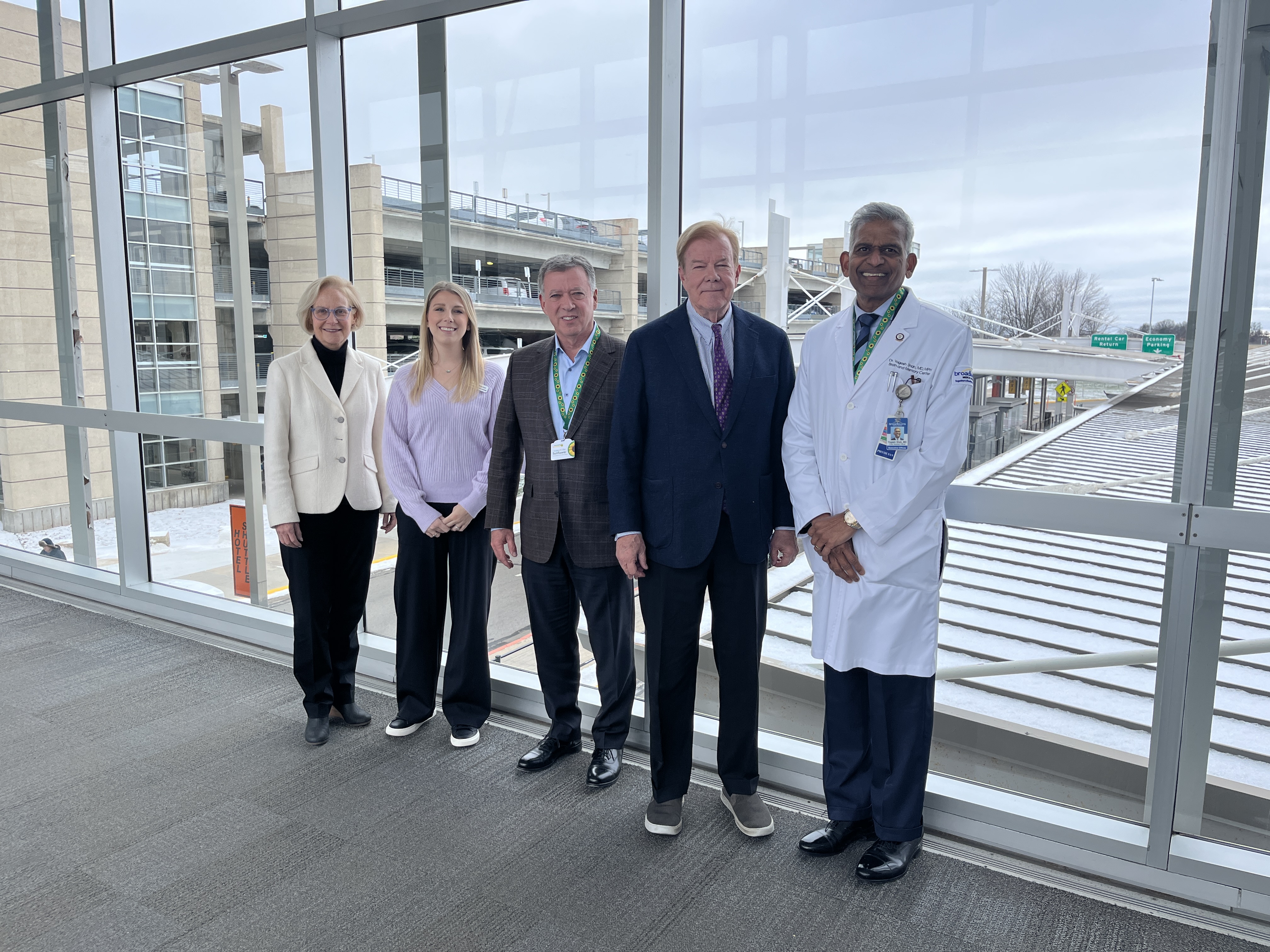
Des Moines International Airport Introduces The Hidden Disabilities Sunflower Program
December 2, 2024
DES MOINES, IOWA — (December 2, 2024) The Des Moines International Airport (DSM) today announced the launch of the Hidden Disabilities Sunflower Program, an initiative designed to support travelers with non-visible disabilities. The announcement was made during a joint press conference featuring leaders from DSM and its partners, including the Alzheimer’s Association, ChildServe, Broadlawns Medical Center, Polk County, and the Transportation Security Administration (TSA).
The Hidden Disabilities Sunflower Program provides a subtle way for individuals with disabilities that may go unnoticed —such as autism, dementia, or sensory processing disorders—to signal their need for additional support while traveling. Participants wear a sunflower-themed lanyard, pin or sticker, which discreetly alerts airport staff and other travelers the individual may require patience, understanding, or assistance.
Kevin Foley, Executive Director of Des Moines International Airport, emphasized the program’s impact: “Travel can be overwhelming for anyone, but for those with hidden disabilities, the challenges can feel insurmountable. By introducing the Hidden Disabilities Sunflower Program at DSM, we aim to reduce stress and make travel more accessible and inclusive for all passengers.”
The program was inspired by local leaders, including Polk County Supervisor Robert Brownell, who shared personal experiences navigating travel with a hidden disability, and Dr. Yogesh Shah, Geriatrics Section Chief at Broadlawns Medical Center.
Key program partners provided insights during the event:
Dr. Yogesh Shah, Broadlawns Medical Center: “For individuals with dementia, busy airports can be confusing and overwhelming. The Sunflower lanyard can provide a vital signal to staff, making travel safer and more enjoyable for these
individuals and their caregivers.”
Lauren Livingston, Alzheimer’s Association: “Hidden disabilities like dementia often cause confusion and agitation. A simple indicator, like a lanyard, helps airport staff recognize when extra care and kindness are needed.”
Dr. Teri Wahlig, CEO of ChildServe: “Families traveling with children who have special healthcare needs often face unique
challenges. This program allows families to discreetly signal when they need a little extra patience and support, without requiring them to publicly disclose a diagnosis.”
Polk County Supervisor Robert Brownell expressed gratitude for the program’s launch: “This initiative represents a significant step forward in making our community spaces more inclusive and supportive for everyone, including those with hidden disabilities.”
ChildServe and the Alzheimer’s Association will distribute lanyards to families through their Welcome Desks statewide. Families and caregivers can also purchase low-cost lanyards through the Hidden Disabilities Sunflower Program. For more information about the Hidden Disabilities Sunflower Program, visit their website at https://hdsunflower.com/ and for a complete list of airports participating in this program, view their maps page.